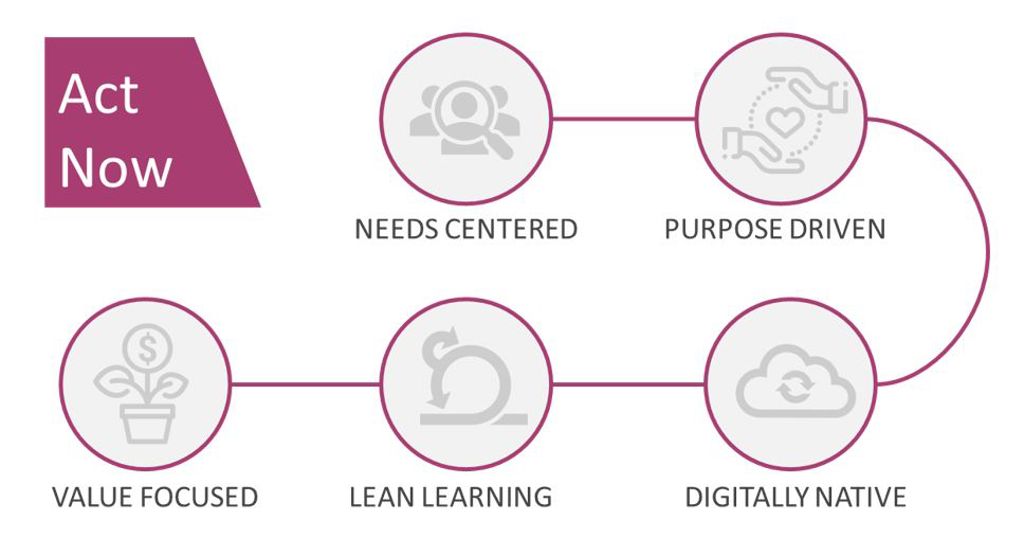Article in collaboration with Research World ESOMAR
The global crisis arising from the Coronavirus (COVID-19) pandemic is far different from previous crises, with unprecedented investment, accelerated digitalisation and ongoing innovation. The paradigm shift of acting in the “now normal”, not waiting for the “new normal”, has ensued an immediate rethink of the core offer and business models.
Undoubtedly, FMCG companies have had to make decisions across their portfolios: they have looked to identify areas to rationalise and act on later, line extension projects have been placed in the wait and see bucket and initiatives have emerged to address the new consumer need requiring an act now approach. Evidence from the 2008 Global Financial Crisis indicates that companies which innovated during the uncertainty outperformed those that scaled down and returned to innovation only when the economy stabilised.
Scalable Innovation
So what are the levers that enable brands to innovate successfully during disruption? Referencing Euromonitor International’s Act Now framework, powered by learnings from the success of innovation during disruption, companies will need to creatively activate five pillars to achieve scale with all new projects:
Needs Centred
As governments forced nations into temporary containment, consumers have been determined to reinstate life-as-usual within the bounds of their home. This has resulted in an unprecedented shift in consumer habits, values and affiliations. The experience for everyone has been unique and is only understood with the lens of empathy. Putting the consumer at the centre, therefore, has been more necessary than ever.
As the waves of the pandemic continue to sway consumer opinion on what is a necessity vs indulgence, brands will inevitably focus more on a needs-centred approach in future product development.
Purpose Driven
The collision of the health and economic crisis has exposed the intricacies of the social fabric, intensifying the focus on welfare and equality. Inevitably this has placed companies’ social footprint at the centre, employee wellbeing as a priority and sustainability as the clear next goal.
In the immediate response to the pandemic, sustainability goals have made room for crisis management. According to Euromonitor International’s Voice of the Industry: Sustainability survey, fielded in June 2020, 29% of food and beverage companies reported a pause in the development or launch of sustainable products due to COVID-19. Yet 91% of global companies supported local communities during the COVID-19 pandemic and 51% reported a commitment to a purpose-driven agenda.
As the supply chain stabilised, global businesses have restated sustainability pledges prioritising purpose. Brands that have constructively contributed to addressing environmental challenges or are seen to support social cohesion now visibly stand out.
Digitally Native
The digital acceleration has landed us five years ahead of where we predicted we would be. Companies are moving from being tech-savvy to digitally-native, impacting all aspects of their operations – from monitoring the supply chain to distribution, marketing and staff management.
Consumers have adopted a mobile-first attitude and are increasingly making most purchasing decisions with a device at hand. 59% of consumers globally think there will be a permanent change in online shopping as a result of COVID-19, according to Euromonitor’s Voice of the Industry COVID-19 survey (April 2020). Euromonitor expects global e-commerce sales will reach a new high in 2020, at USD2 trillion.
Going digital is now a commitment to data-centric decision-making and automation, whilst ensuring that the experience for the customer is up to high standards.
Lean Learning
Innovating during this disruption has equipped many with the experience to launch and test quickly, something that innovation teams struggled to embed across organisations for years. If we have learned anything from the past nine months, it is that we must be flexible and adaptable. Here is where the agile principles of prioritising the customer and testing raw innovation have really helped brands to maintain their position.
Some such shifts have been around incremental innovation to meet the need of the multi-functional home or the pressure on the consumer wallet. Some have been more transformative innovation undertakings like repurposing manufacturing from apparel to PPE. With all, time was of the essence, and brands quickly designed a minimum viable option that they sent to the market.
Companies must adopt this mindset and, through learning, master it in order to remain competitive in the future.
Value Focused
However, as the recovery unfolds, consumers, organisations and governments will have large bills to pay. If the lessons from the 2008 Global Financial Crisis are anything to go by, we can expect an expansion of affordable channels such as discounters, where global retail sales are set to grow by 0.8% in 2021 in real terms, while sales through supermarkets contract by 2.1%, with Aldi recently announcing the opening of 100 new stores in the UK. And we witnessed long lines of customers in front of Primark in London when it reopened in June 2020, again one of the winners in the Global Financial Crisis recovery.
The challenge for innovation in the foreseeable future will remain to demonstrate a clear value for money, the needs which the product addresses and the purpose it fulfils.
Innovation can help recovery
The shift to online buying via established sites has inevitably favoured the incumbents over younger brands. These same large brands are now better placed to scale the innovation that has resonated with consumers. It is imperative, therefore, that companies embrace the lessons from the Act Now approach and use it to fuel innovation during the recovery.
For further insights, watch Euromonitor’s complimentary webinar on demand Innovating During Coronavirus: A Guide to Recovery and Business.

